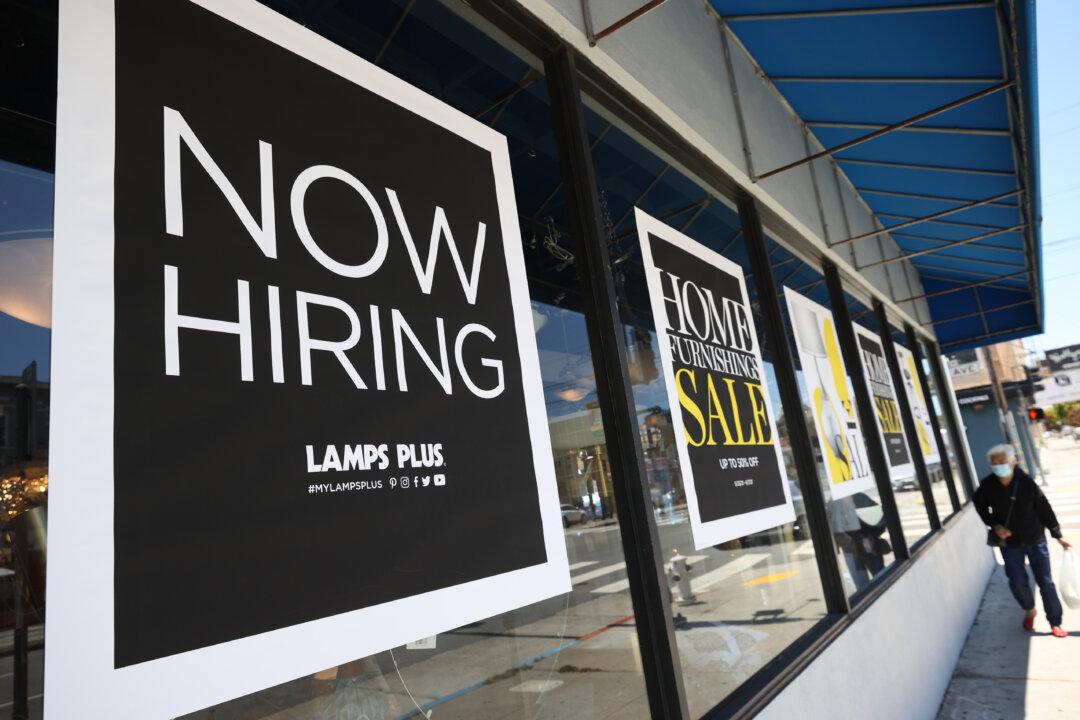The brisk economic recovery has driven down the number of American workers seeking unemployment benefits, which last week fell to a pandemic-era low, although the number remains historically elevated.
Initial filings for unemployment insurance, a proxy for layoffs, came in at 385,000 for the week ending July 31, a drop of 14,000 over the previous week’s revised level, the Labor Department said in a release (pdf) on Aug. 5.





